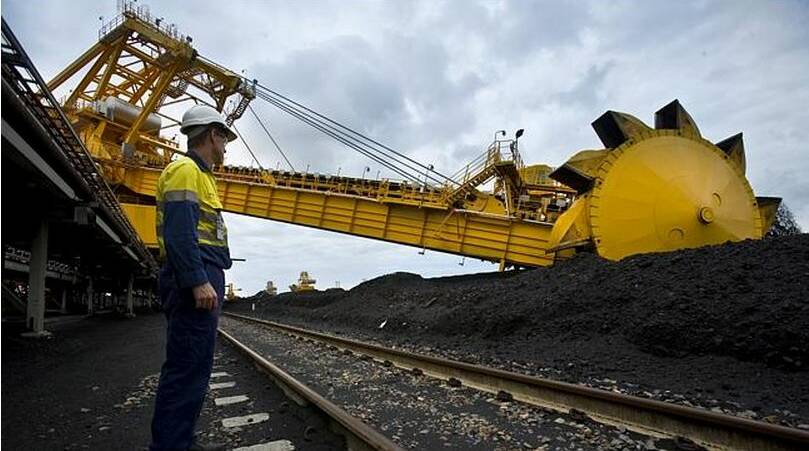
BENDIGO and Adelaide Bank has become the first major bank to publicly oppose investing in coal and gas projects, joining a number of big superannuation funds.
Subscribe now for unlimited access.
or signup to continue reading
The decision by Australia’s fifth-biggest bank puts it at odds with the big four banks, which have been criticised by activist investment groups for lending to fossil fuel industries.
Bendigo Bank executive Marnie Baker said the company was committed to minimising environmental harm, which included the operations of the businesses in which it invested.
“Specifically, the bank does not lend to companies for whom the core activity is the exploration, mining, manufacture or export of thermal coal or coal seam gas,” she said.
Investment in coal and gas companies has been on the radar recently, with some super funds deciding to scale back some portfolios with exposure to oil, coal and gas projects. AMP Capital revealed plans for its responsible super funds to limit exposure to the oil and gas industry, citing “growing interest and concern” about climate change from investors.
Education industry fund Unisuper has similar plans and will remove fossil fuel companies from its socially responsible funds in September.
Those fund managers will be heartened by the results of a recent survey released by climate change advocacy group 350.org, showing 67 per cent of people would move their money away from fossil fuels.
The Lonergan Research poll asked 1314 people nationally on their attitudes to climate change and fossil fuels. It found 72 per cent were concerned about the Australian economy’s reliance on the fossil fuel sector.
Minerals Council spokesman Ben Mitchell said most Australians knew nothing of the campaign to reduce fossil fuels investment.
He said reduced investment in mining companies by major financial institutions would be devastating for Australia’s economy. “The divestment campaign is environmental activism dressed up as financial advice,” he said. Australian Ethical Investments chief executive Phil Vernon welcomed the findings. He called on more funds to limit their exposure to fossil fuel energy companies.
He said investors could exert a lot of power when they chose where to invest their money. However, he said the push was being stalled by the difficulty for some investors to figure out where their money was being invested.
The federal government has delayed until July 2015 the introduction of a new regime that will require super funds to disclose where it invests a portfolio.
“Your super fund and your mortgage and your bank account is the biggest impact that you can have besides the day-to-day decisions as a consumer,” Mr Vernon said.
He pointed to recent promises by US president Barack Obama to curb carbon emissions, saying there would be increased fossil fuel divestment by financial institutions in the future.
“It’s not environmental activism at all. There are quite sound financial reasons why being invested in fossil fuels is a risk to investment portfolios over the long term,” he said.

